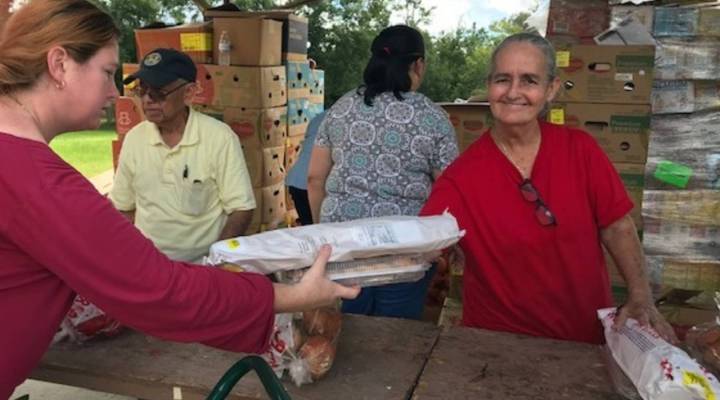
How food banks are reaching high-risk seniors

The AARP estimates more than 10 million people 50 and older are at risk of going hungry every day in the United States. In Florida, where many baby boomers retire, this food insecurity is compounded by a lack of public transportation. Some food banks are holding food drops to bring food and other health-related events to the neighborhoods where they live in an attempt to reach more high-risk seniors.
This story was produced by the Marketplace hub at WMFE in Orlando.
There’s a lot happening in the world. Through it all, Marketplace is here for you.
You rely on Marketplace to break down the world’s events and tell you how it affects you in a fact-based, approachable way. We rely on your financial support to keep making that possible.
Your donation today powers the independent journalism that you rely on. For just $5/month, you can help sustain Marketplace so we can keep reporting on the things that matter to you.












